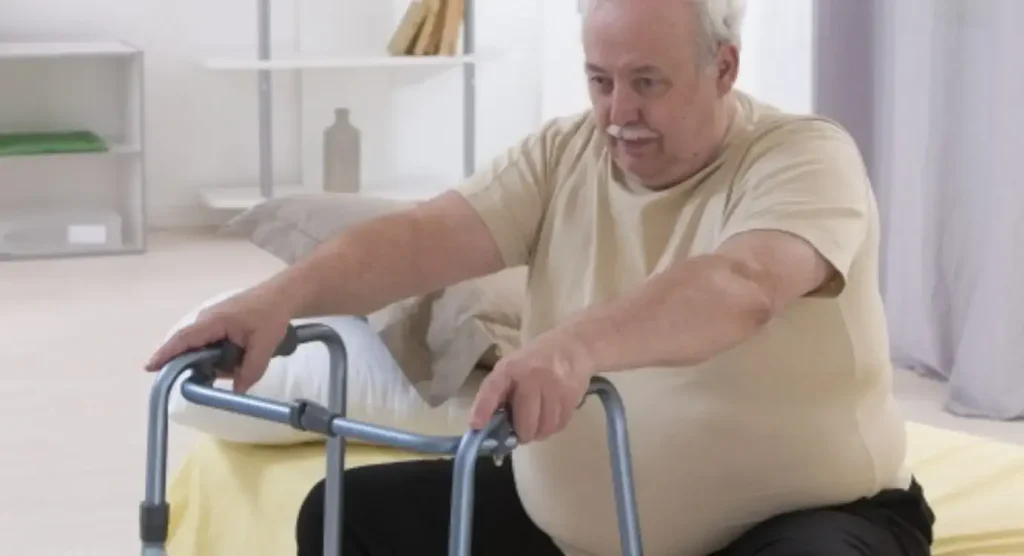
Obesity in the Elderly + Causes and 5 Treatment Methods
In this article from the humanhealthmag site, we will examine the cause of obesity in the elderly and ways to treat it. Obesity is a chronic disease and, like any other chronic disease, it takes time to treat. Try not to use medication in the treatment of obesity in the elderly, because medication is not food and in any case has many side effects. Never rush in losing weight after 50, remember that a diet with gradual weight loss is not only more tolerable, but also has no side effects and is almost irreversible.
According to the relationship between elderly nutrition and diseases, the most important method in controlling and treating obesity is diet. Obesity is also directly or indirectly related to many diseases, such as: hypertension (obesity in the elderly with high blood pressure), atherosclerosis (hardening of the walls of the arteries), liver and biliary diseases (mostly gallstones), arthritis including osteoarthritis (each person’s bones are designed for their healthy weight), respiratory disorders – gout – varicose veins – infertility – preeclampsia – hirsutism (female hairiness) – high blood fat – feelings of social deprivation and humiliation (of course, in severe obesity). Below, we explain important points in the field of treatment of obesity in seniors.
What is Obesity?
Before discussing the topic of obesity in the elderly, we must first familiarize ourselves with the concept of obesity. In fact, obesity is a type of disease that can disrupt your body’s health by accumulating excessive or abnormal fat. According to the World Health Organization, obesity is considered a global epidemic and more than 650 million people worldwide are affected by it. Obesity is an important factor in the development of many diseases, including diabetes, cardiovascular diseases, musculoskeletal disorders and some cancers.
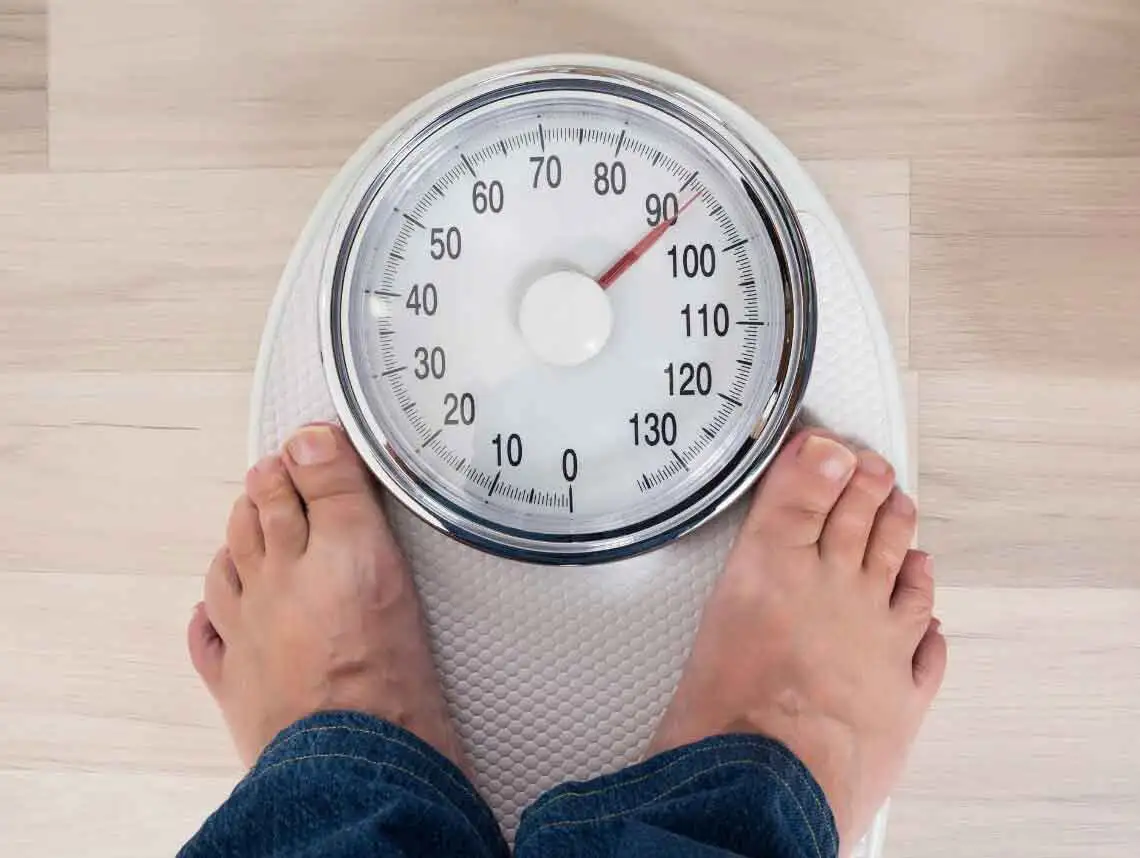
The medical definition of obesity is based on calculating the body mass index (BMI), a formula in which weight in kilograms is divided by the square (square) of height in meters. People with a BMI of 30 or higher are considered obese. BMI can also be used as a measure of your overall health. Of course, by observing food requirements for the elderly, obesity in the elderly can be prevented.
Cause of Obesity in the Seniors
What causes obesity in the elderly? In general, obesity is caused by an energy imbalance between calories eaten and calories expended, although some people are more prone to obesity than others. Children and caregivers of the elderly should be familiar with foods for weight gain in the elderly and discourage the elderly from eating these foods. In general, environmental factors that contribute to obesity include:
- Genetics 30% of the cause of obesity
- Eating disorder (receiving more energy and less activity)
- Due to internal pressures, stress and depression in the elderly
- Use of certain medications such as contraceptives, antidepressants and anti-anxiety drugs and corticosteroids
- Elderly people with diseases such as hypothyroidism (underactive thyroid), hypothalamic disorders
Of all these factors, eating disorder or bad eating habits are the most important in treating obesity in the elderly. For example, if a person eats an extra toast every day in addition to his daily requirement, he will gain fifteen kilograms of weight after 20 years.
Other Factors that Cause Obesity in the Elderly
Obesity in the elderly does not only occur due to overeating, there are other ways that also lead to obesity, which is mostly caused by a disease in the body. Other factors that cause obesity include:
- Obesity due to hypothyroidism: The hormone secreted by this gland plays an important role in the body’s metabolism while performing various tasks.
- Diabetes: This chronic disease is usually associated with obesity. Of course, in some cases, it is believed that excessive obesity leads to this disease.
- Obesity due to aging: As you age, your metabolism decreases and as a result, you will need less food. Eating as usual will lead to obesity.
- Obesity in menopausal women and elderly men: In women, weight gradually increases due to a decrease in the secretion of female hormones. As a result, these people should be aware of this risk and exercise restraint in eating food (eat less).
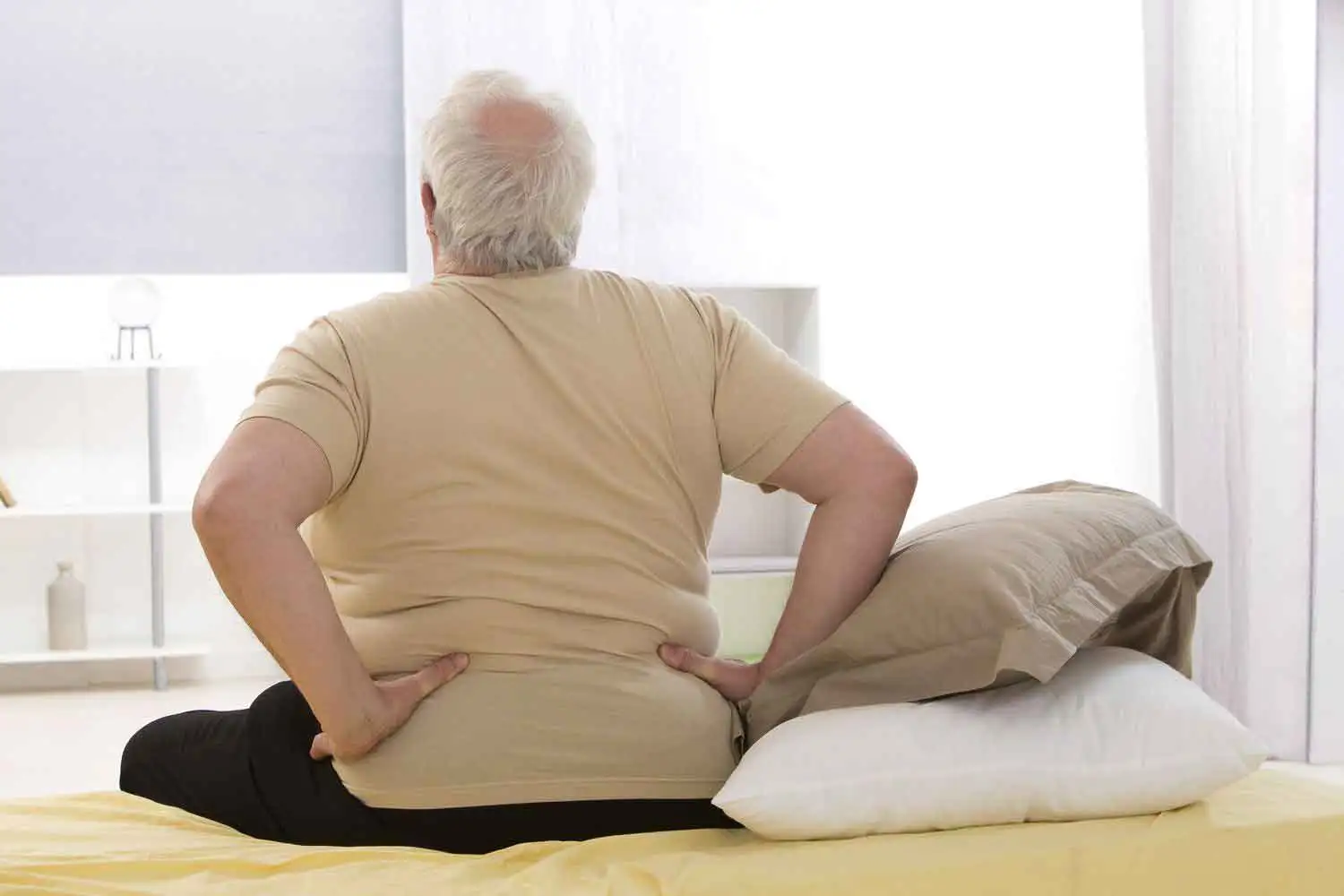
- Obesity due to poor endocrine function: Most of the body’s functions are controlled by a hormonal system that is controlled by a part of the brain called the hypothalamus and the pituitary gland. If the function of these organs is disrupted for any reason, a disease called Cushing’s disease appears, which leads to excessive obesity.
- Poor functioning of the kidneys and heart: The kidneys are responsible for excreting water, and about one cubic centimeter of urine is secreted from the kidneys every minute, which removes toxins from the body. If the kidney function is disrupted in any way, water remains in the tissues, the body swells and weight increases. Similarly, when the heart does not work well and does not perform its pumping function properly, water accumulates in the body and causes obesity.
5 Methods of Treating Obesity in the Elderly
There are five methods for treating obesity in the elderly. By choosing the best method to reduce excess weight in the elderly, you can bring them a life free from pain and discomfort caused by obesity so that they can enjoy their old age.
1- Drug Therapy
Drug therapy is one of the ways to treat obesity in the elderly, which is divided into 4 categories: diuretic drugs, hormonal drugs, laxative drugs, and drugs that prevent fat absorption:
- Diuretic drugs: which cause rapid weight loss by losing water from the body, which is not only scientifically incorrect but also dangerous.
- Hormonal drugs: such as drugs that cause hyperthyroidism. These drugs also cause weight loss and weight loss by increasing catabolism (energy or fuel consumption), which is also scientifically incorrect and dangerous because it disrupts the body’s natural processes.
- Laxatives: They cause weight loss by eliminating food from the body and preventing the absorption of substances, which obviously will cause malnutrition and a lack of some of the body’s needed substances in the long run. In addition, they themselves have side effects such as abdominal pain, etc.
- Drugs that prevent fat absorption: These drugs, which are widely used today and are widely advertised, prevent their absorption by binding to food fats, thereby reducing the amount of calories in the body. Because the diet of Iranians, unlike Westerners, contains more starch, their use is not completely effective. Also, these drugs, contrary to advertisements, do not affect body fat.
2- Treatment of Obesity in the Elderly Using Special Methods
These include: sauna, thermotherapy (using local heat), massage therapy, slimming belts, acupuncture, creams, ointments, gels, slimming earrings, all of which are not accepted in terms of medical science and nutrition, and all of which cause more or less complications. In addition, most of these methods only reduce size instead of losing weight or losing weight in adults or the elderly.
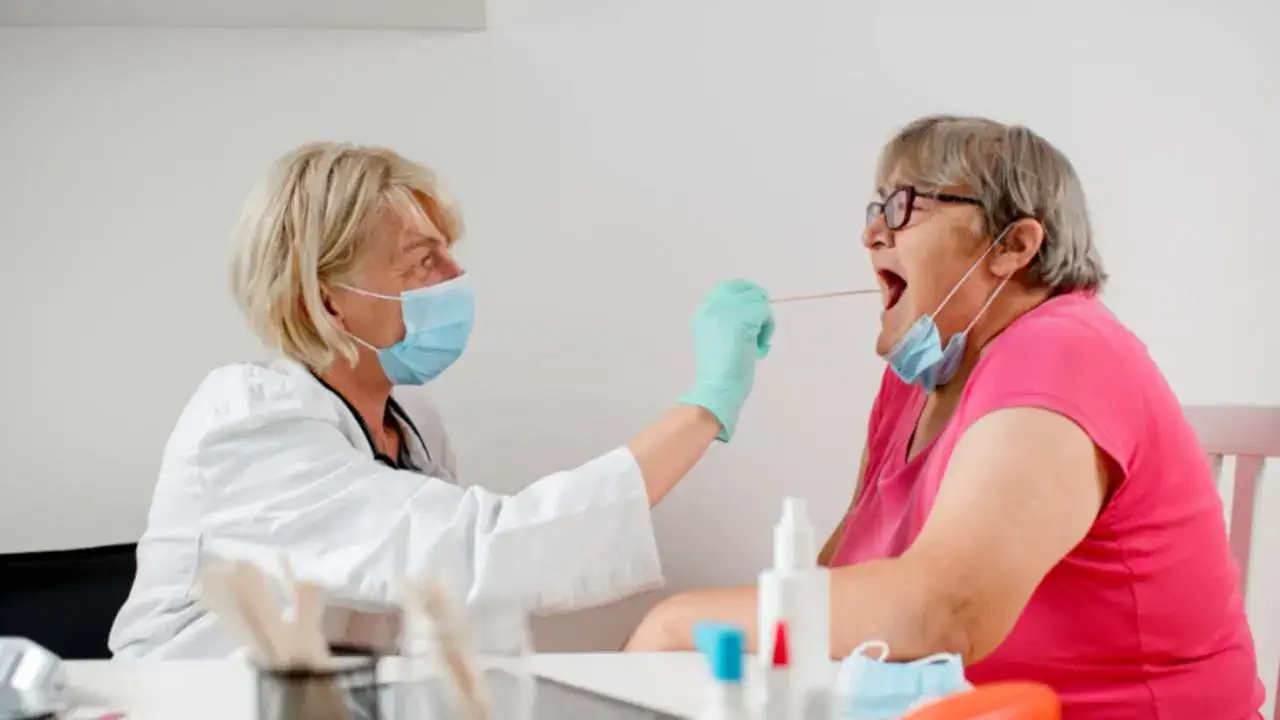
3- Surgical Treatments
are performed in cases of very severe obesity. They include removing parts of the intestine or stomach, placing a balloon inside the stomach to reduce its volume, and removing fat under the skin of the abdomen with suction or laser, all of which are not very popular due to their severe complications.
4- Diet Therapy
is one of the old methods and after the end of the course, it causes digestive disorders due to severe food deprivation. In addition to severe physical complications, it can only be tolerated for a short time and cannot be a suitable dietary pattern for elderly care.
5- Treating Obesity in the Elderly With Exercise
Exercise is one of the most suitable methods for having a healthy body and ideal weight. Losing weight only through exercise is difficult and difficult because, for example, to lose one kilogram of weight, you have to walk for 20 hours.
Weight Loss in Elderly With Diet and Exercise
This method is the best and most principled method for treating obesity in the elderly, losing weight and having an ideal weight. In this method, a planned diet is used along with balanced exercise (such as walking). This method brings health to the body and soul and will not cause side effects such as hair loss and wrinkling of the skin, etc. During the diet, you should leave your past eating habits and get used to new eating habits, which is the most important principle in treating obesity. Therefore, the best and healthiest solution provided for treating obesity in the elderly is:
- Proper diet
- Adequate and appropriate exercise
- Behavior change and correction of bad eating habits
How to Deal With Obesity in the Elderly?
First, the determination of the amount and degree of obesity is based on tables and coefficients, for which purpose it is necessary to act according to the normal and standard limits of each society that have been determined. If you know that you are overweight, you should first look for the cause:
- Do you exercise enough?
- Do you have a hereditary predisposition to obesity?
- Have you changed your diet?
- Are your food preparation and cooking methods healthy?
- Are you familiar with proper nutrition for caring for the elderly?
- Is a specific disease of the types mentioned above the cause?
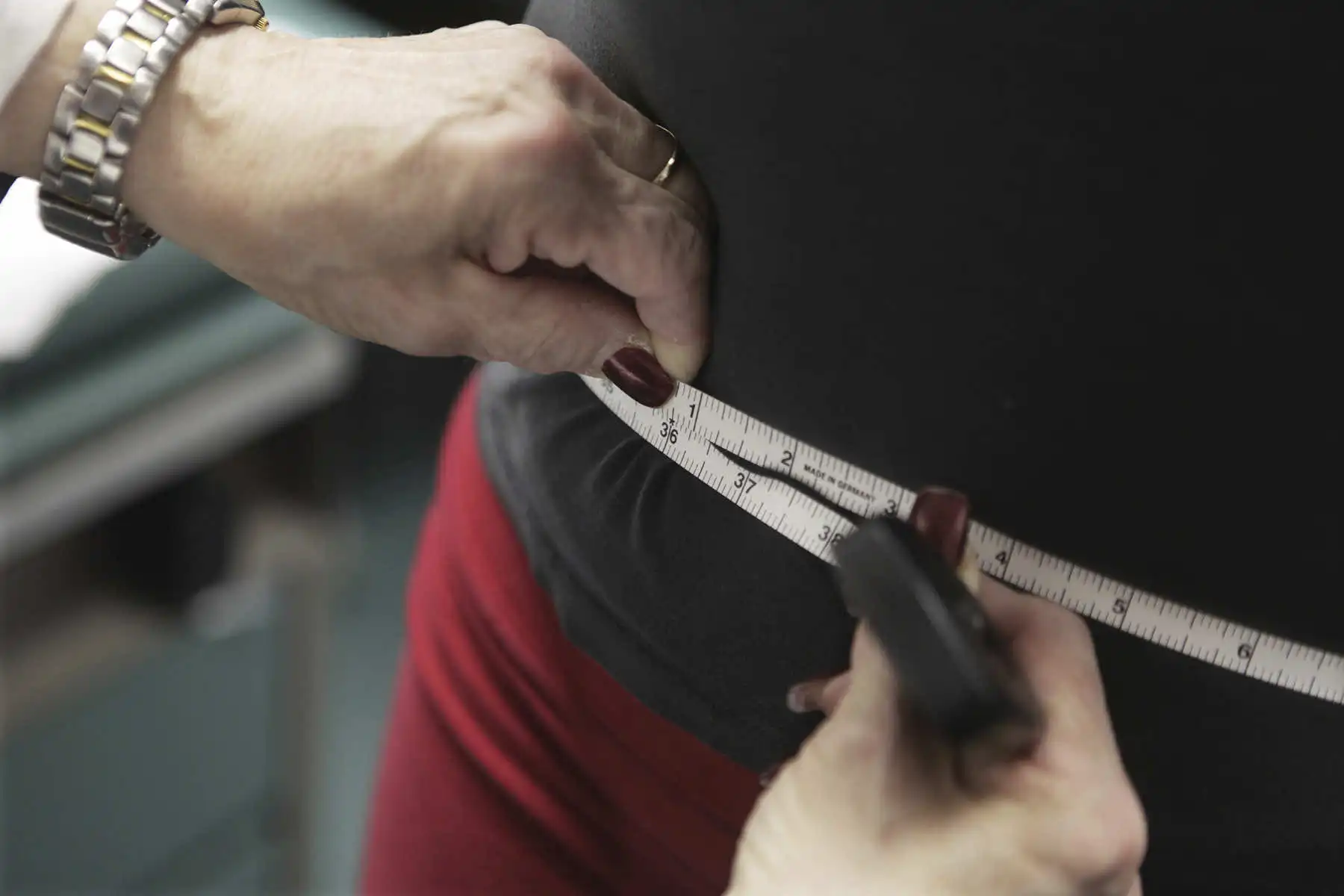
Researchers from seven major health organizations in the world believe that you can control and protect yourself from diseases such as diabetes, cancer, cardiovascular diseases, blood diseases, and lung diseases, provided that you observe the following points:
- Drink between 6-8 glasses of water daily.
- Get at least 6 hours of restful and comfortable sleep every night.
- The food you eat should be from all foods and varied.
- Use more plant-based protein sources in your diet.
- Stop drinking alcohol because it causes irreparable damage.
- Gradually increase your intake of fruits and vegetables and try to eat them more raw.
- Avoid mental problems to avoid obesity.
- Avoid fats, especially saturated fats (solid).
- Avoid consuming extra salt with food.
What are Negative Calorie Foods?
Calorie is the standard unit of measurement of the amount of energy in food. All types of food contain calories. To eliminate obesity in the elderly, you can use negative calorie foods, which we will introduce below.
Negative calorie foods
- Foods that the body requires to consume higher amounts of energy compared to the energy content in these foods. This ultimately causes the body to burn some energy. Negative calorie foods are actually foods that the amount of energy required to digest and absorb by the human body is much higher than the amount of energy in these foods. These foods are also effective in treating obesity in the elderly.
Contents of negative calorie foods
- Negative calorie foods actually contain a variety of vitamins, minerals, and other substances needed by the body. These vitamins and minerals are needed for the production and activity of many enzymes in the body. Negative calorie foods, due to their role in providing the body with the vitamins and minerals it needs, help the body break down and metabolize the foods it consumes. In fact, the amount of vitamins and minerals in this group of plants is such that it not only helps the body break down and burn the calories in these foods, but also helps the body burn the calories in other types of foods consumed.
Fiber in negative calorie foods
- This group of plants contains high amounts of fiber (cellulose) and water. Obviously, water has no calories and cellulose is not absorbed by the body and will not lead to fat accumulation and weight gain. In addition, the cellulose content of these plants helps the digestive system function and increases the excretion of waste products by the intestines, which in turn helps significantly in weight loss.
Concluding Remarks
In this article, we talked about obesity in the elderly. In general, obesity is a chronic disease that we must think of a way to treat obesity in the elderly because obesity is directly related to contracting other diseases. There are different ways to lose weight in the elderly, which exercise can greatly affect. By choosing the right food for the elderly, we can sweeten the life of the elderly for them. Among these foods are negative calorie foods that should be included in the elderly diet.
We’re curious to hear your thoughts! What’s your take on this topic? Comment below and join the conversation; your opinion could spark new ideas!

FAQs
Can Elderly Lose Weight With a Diet?
Skipping a meal such as breakfast or dinner is one of these methods. By skipping breakfast, a person experiences a drop in blood sugar during the day and a decrease in daily efficiency and aggression, and at the same time, they compensate by overeating at subsequent meals. In addition, malnutrition is also one of its complications. The best method in this case is a scientifically based diet in which all the nutrients the body needs are provided in the diet.
How is Obesity Diagnosed in the Elderly?
In elderly people, due to changes in body shape, the amount of muscle fat increases and its accumulation in the abdominal area and obesity occurs in the elderly. When there is too much intra-abdominal fat tissue in the elderly, complications also increase. In these cases, the abdominal circumference of the elderly increases significantly and in some cases this obesity also causes leg swelling in the elderly.
What Causes Obesity?
Obesity is usually caused by poor nutrition, lack of exercise, genetic factors, hormonal disorders, stress, insufficient sleep, poor eating habits, and aging.
What Causes Sudden Abdominal and Flank Obesity?
Sudden abdominal and flank obesity can be caused by poor diet, lack of exercise, stress, hormonal disorders, digestive problems, or medication side effects.
